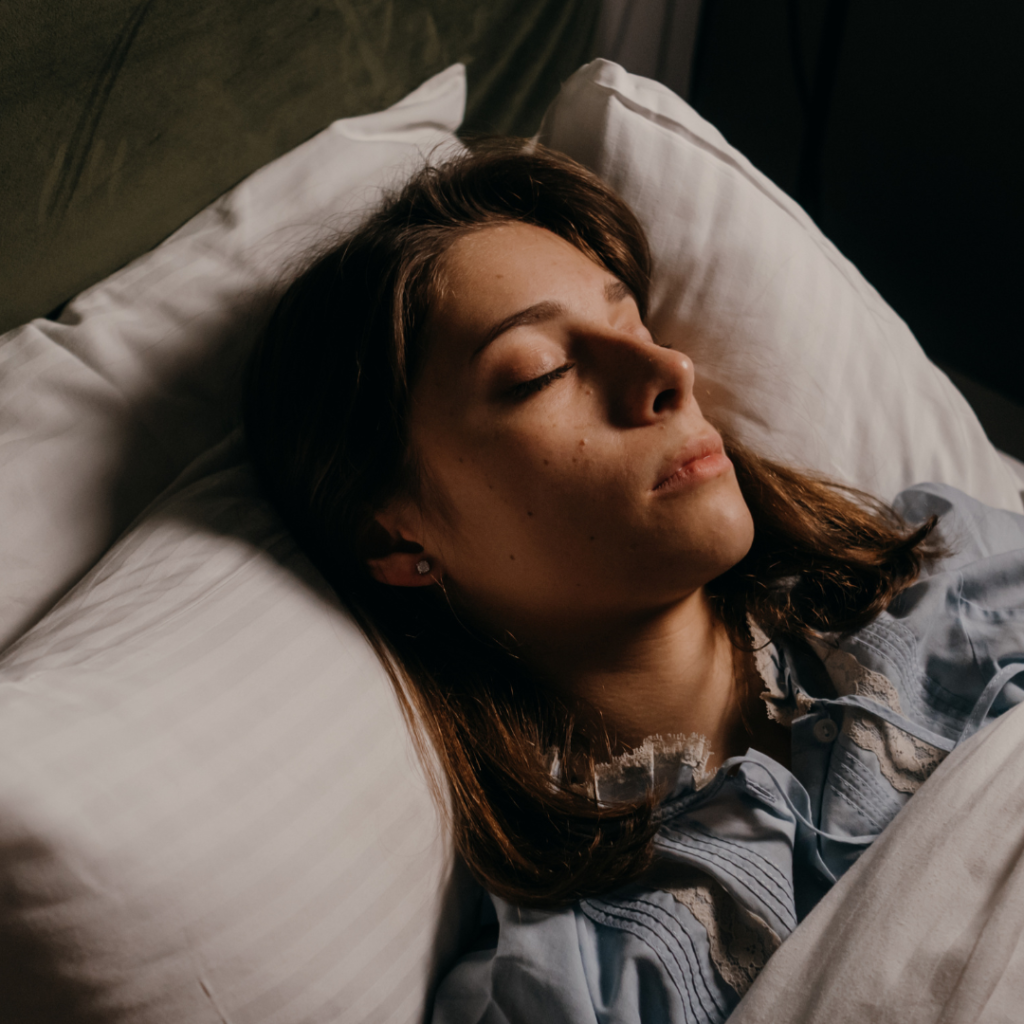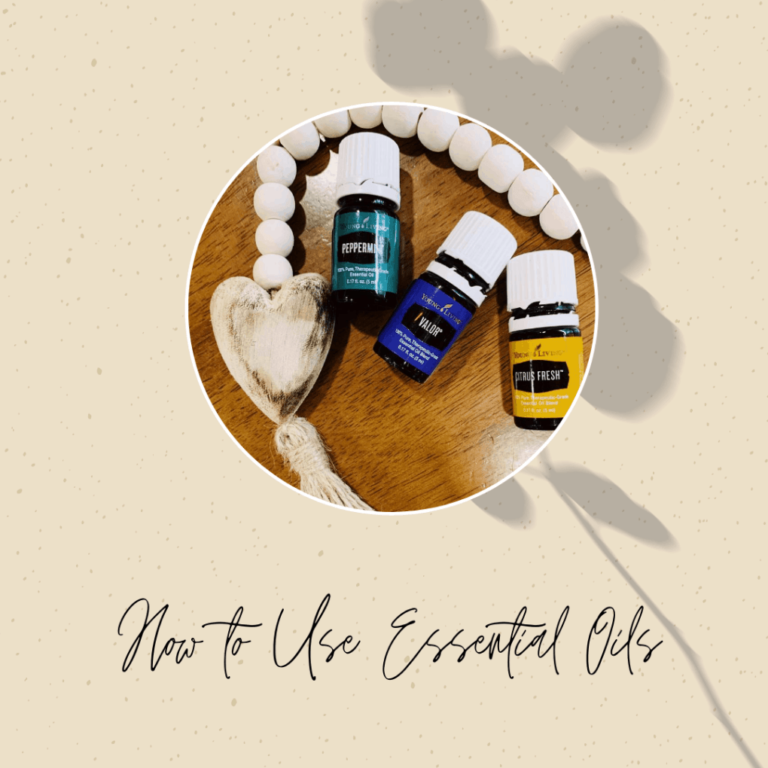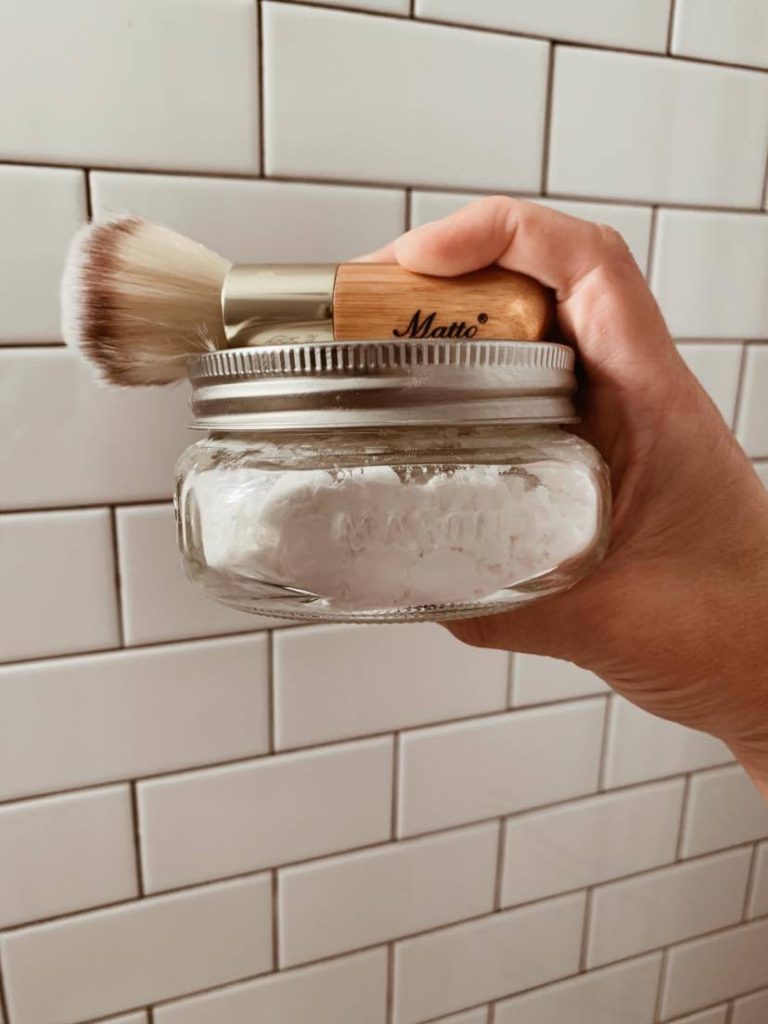How to Achieve Better Sleep
Can better sleep really improve your health and fertility?
Absolutely!
When we prioritize our sleep we are giving our bodies time to rest, heal, destress, balance hormones, and more. Healthline even lists these major benefits of quality sleep:
- Can help maintain or lose weight
- Can improve concentration and productivity
- Can maximize athletic performance
- Can strengthen your heart
- Affects sugar metabolism and type 2 diabetes risk
- Decreases your chances of depression
- Supports a healthy immune system
- Decrease inflammation
- Affects emotions and social interactions
So when we prioritize quality sleep we are really giving our overall health a big boost, which ultimately gives our fertility a big boost as well!


But how do we achieve better sleep? Step one is to identify why we aren’t sleeping well.
Why am I not sleeping well at night?
This answer will be different for everyone, but most answers will boil down to either location, habits, stress, or stage in life.
Let’s say you live close to a noisy area and that keeps you from staying asleep all night.
Or maybe you just generally get in bed late and then binge shows to unwind.
Maybe you have little ones and their sleep patterns keep you from staying asleep in your own bed most nights.
My personal problem- my list of to-dos is running through my head and I can’t shut it off
So let’s do a little dive and think about what keeps you up late or from staying asleep. Take out a piece of paper and jot down some ideas. That will help you take the next set of tips and find what can be the most effective for you to achieve that better sleep!
The second step is to try a few of these tips below.
How to sleep better at night naturally
Let’s break this down into tips of things to avoid for better sleep and things to incorporate for better sleep.


What to avoid for better sleep
When it comes to more restful and longer sleep we are going to want to cut out things that interrupt our sleep patterns. The two biggest culprits are alcohol and blue light.
Alcohol
I know you are probably thinking “ well actually a glass of wine helps me fall asleep.” You would be right- alcohol can cause sleepiness in the beginning phase, but what happens is then it disrupts the circadian rhythm and REM cycles. This means that you are falling asleep easier, but not actually good quality deep sleep. [2,3,4]
Blue Light
Blue light is pretty scientific and a little hard to explain, but to keep things simple for the purpose of this article you just need to know that blue light is the light/energy/wavelengths that come from things like the sun and screens. Usually, if you hear people referring to blue light these days they are likely talking about the blue light that is being emitted from screens like TVs and phones.
So here’s the issue when it comes to better sleep. Blue light from the sun helps regulate our circadian rhythm and lets our body know when its time to go to sleep, BUT nowadays we watch TV and scroll our phones before bed so we are getting blue light which can potentially trick our body into essentially thinking the sun is still up and we should be awake. That’s why sometimes when you are done scrolling social media and putting your phone down to go to sleep, you actually have a hard time falling asleep. [5]
There are also debates on whether or not the blue light from our screens is actually damaging our eyes, but that’s a chat for another day. For now, just know that it’s ideal to limit screen time and avoid it up to an hour before bed so you can fall asleep easier.
What to add into your routine for better sleep
Routine
I know schedules are not everyone’s favorite thing, but having at least a general routine in place will help your body get ready to fall asleep. Try to aim for going to bed at the same time every day. It doesn’t have to be perfect, but sticking to a general time will make everything easier.
I personally love to dim all the lights after dinner which helps give my body a hint that nighttime is coming and then I aim to go to bed between 8 and 9 every night. This allows me to have at least 7 hours of sleep before I get up in the morning because I know that I’ll generally wake up around 6.
Hint: we really want closer to 7-9 hours of sleep as opposed to 6.
Magnesium
When I work with my Mercier Therapy and fertility patients, I generally suggest a magnesium supplement as part of the protocol. The reason is that it helps with hormone balance and stress, but even more, it helps promote better sleep!
(Hint: if you want to talk about options for your fertility journey and steps you can take, just schedule a consult by clicking the button below!)
There are a few different types of magnesium so make sure that if you do incorporate a magnesium supplement that you (check with your doctor first of course) make sure it is Magnesium glycinate. Take 30 minutes to an hour before bed!
Journal or make a list
If you had a stressful day or have a lot on your mind, a great way to get it out so that it doesn’t keep you up is to journal or simply write it down. I love to make a to-do list for each day so that I don’t have to worry about forgetting anything. This helps my mind to unwind and “shut down” for the evening.
Sound Machine
I personally love sound machines. I’ve used them with my kiddos since they were babies and they help everyone stay asleep longer. Imagine the house is perfectly quiet and you are drifting off to sleep, but then your husband drops a spoon in the kitchen, and the sound jolts you awake! If you have a sound machine on, then it could drown out the loud and jolting noises.
This is a great option for people who live in busy cities with lots of traffic or noise as well!
Conclusion
Better quantity and quality in sleep is vital to our health and fertility!
Making a few small changes could make better sleep easier to achieve and get you one step closer to your health goals. Give these few a try and let me know in the comments what your favorite tips are!







